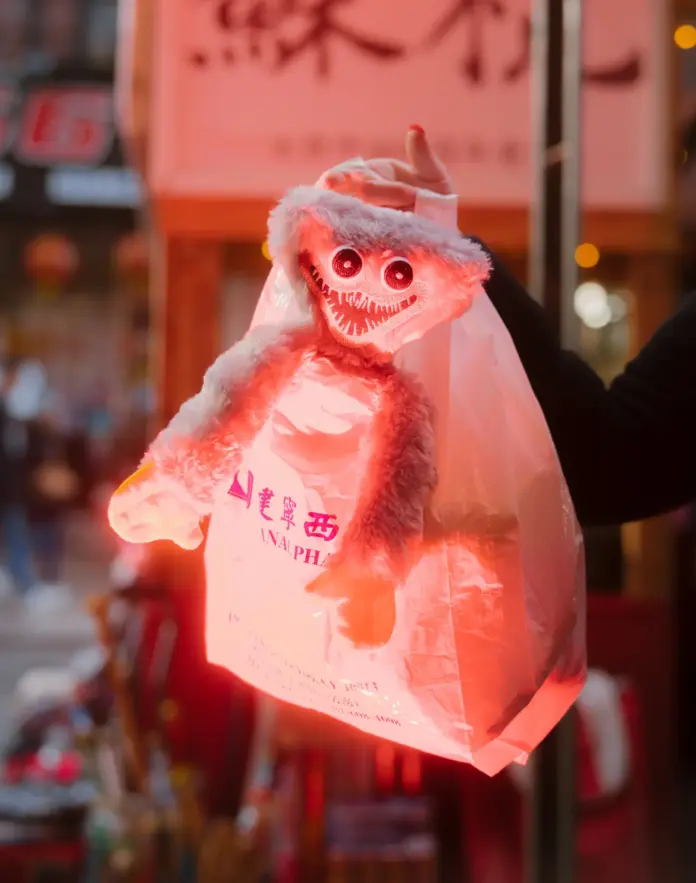You’ll meet his bloodshot, menacing gaze in any number of neighborhoods in New York, his mouth stretched into an open, hungry grin, his tentacle-like limbs ready to envelop you. On Mott Street in Chinatown, he is lashed to display racks in front of shops selling New York City-themed cooking aprons or “Got Weed?” T-shirts; in Bushwick, he’s a frequent presence on the tabletops of sidewalk sellers. He might be blue, or orange or tie-dye, or even wearing a little Santa hat and Christmas scarf.
His name is Huggy Wuggy, and he has joined the ranks of unavoidable knockoff toys and trinkets marketed to toddlers, teens and Hot Topic adults all over the world: Bosnia, Spain, Laos, South Korea or anywhere else you might find a tourist-trap souvenir shop or market of bootleg goods.
Because the Huggy that children know is often detached from the Huggy of the game, the market for physical Huggy toys doesn’t differentiate much between the original character and his digital knockoffs. Though almost all of these plushies feature the villainous face and body structure, many come in colors that never actually appear in the game.
Perhaps unsurprisingly, many of those toys are themselves unlicensed.
Arsenio Navarro, Mob Entertainment’s director of business development, estimated that counterfeit products have cost the company millions of dollars in royalty revenue. According to Trevor Vogl, a Mob financial analyst, “upwards of 500,000” plush dolls and toys exported from China that were based on the company’s characters have been seized and destroyed by customs officials; a service that Mob uses to identify counterfeit vendors has flagged more than 300,000 online listings for products featuring Mob’s intellectual property.
“Most of our fans have never played our game,” Mr. Belanger said. “The brand awareness is greater than our ability to monetize it successfully to this point.” And as for the knockoffs, “it’s a good problem to have, I’m told,” he said. To this day, Mob has never spent any money on marketing its games.
Source: Taylor, M. J. (2023, February 17). The terrifying plushie taking over gift shops everywhere. The New York Times. https://www.nytimes.com/2023/02/17/style/huggy-wuggy-poppy-playtime.html?searchResultPosition=12
Analysis: I think that while having counterfeits must be annoying, the fact that they brought in free PR and they haven’t had to do any true marketing is an interesting position to be put in. There might be ways to enrich their social media presence to obtain “influencers” who can keep spreading information and bring in more visitors.




